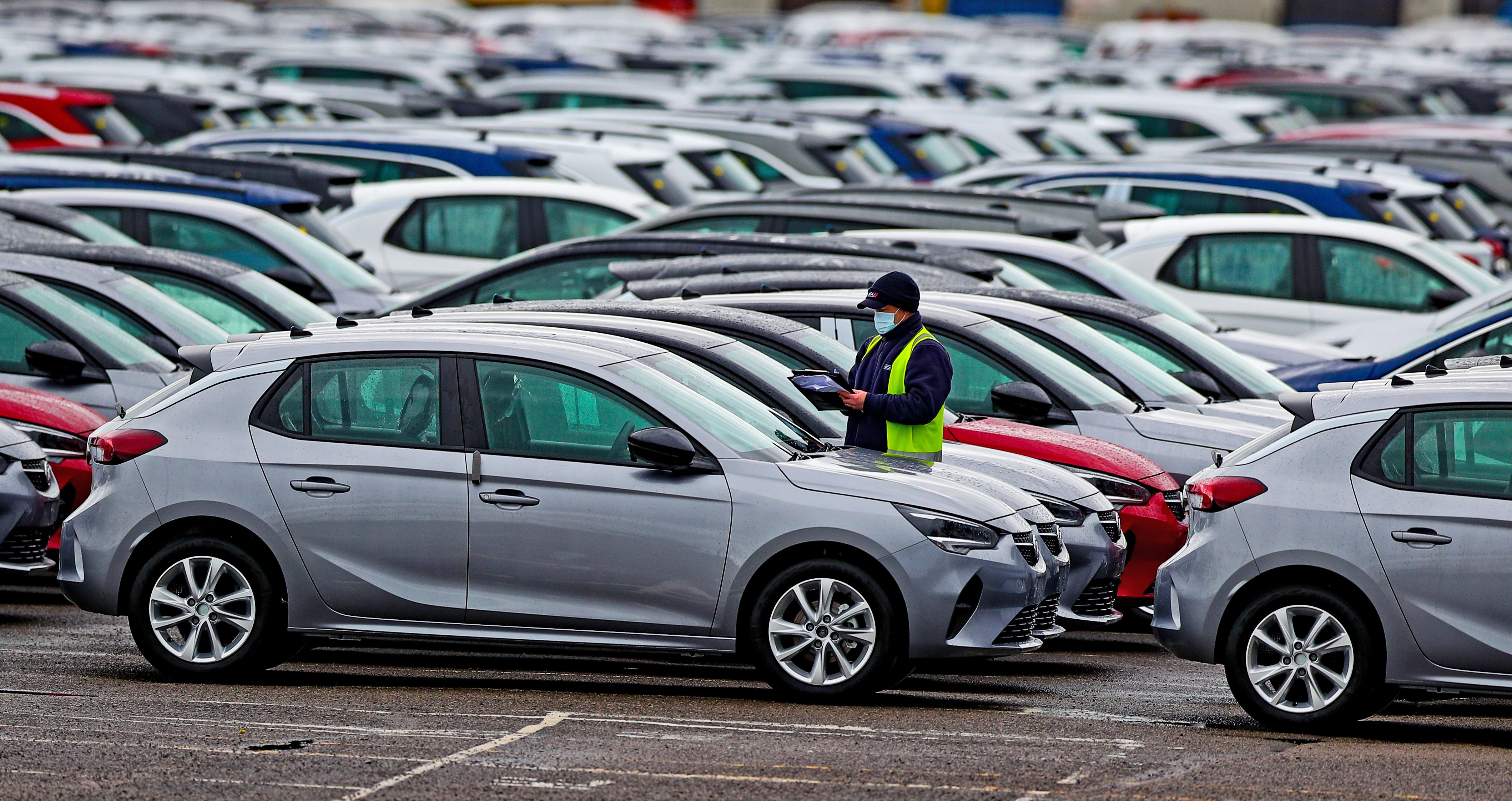Demand for new cars up 1.7% but industry warns over ‘weakness’
The Society of Motor Manufacturers and Traders said 115,706 new cars were registered in the UK last month.

Demand for new cars grew by 1.7% last month compared with lockdown-hit November 2020 but the automotive industry issued a warning about the market’s “weakness”.
The Society of Motor Manufacturers and Traders (SMMT) said 115,706 new cars were registered in the UK last month.
Although that halts four consecutive months of year-on-year decline, the total was 31.3% down on the pre-pandemic five-year November average.
Disruption is likely to last into next year
Battery electric vehicles represented nearly a fifth of the new car market last month.
SMMT chief executive Mike Hawes said: “What looks like a positive performance belies the underlying weakness of the market.
“Demand is there, with a slew of new, increasingly electrified, models launched but the global shortage of semiconductors continues to bedevil production and therefore new car registrations.
“The industry is working flat out to overcome these issues and fulfil orders, but disruption is likely to last into next year, compounding the need for customers to place orders early.
“The continued acceleration of electrified vehicle registrations is good for the industry, the consumer and the environment but, with the pace of public charging infrastructure struggling to keep up, we need swift action and binding public charger targets so that everyone can be part of the electric vehicle revolution, irrespective of where they live.”
Ian Plummer, commercial director at automotive classified ad firm Auto Trader said the slight uptick in new car sales in November was “not a sign that the new car supply issues are beginning to ease”.
He went on: “The majority of November’s registrations will have been pre-ordered months ago.
“In reality, the global shortage of semi-conductors is still being keenly felt at the forecourts, holding back sales to a level well below the very strong underlying demand we continue to see.”
Richard Peberdy, UK head of automotive at professional services firm KPMG, said it is “reassuring for the industry” that demand for new and used vehicles “continues to outpace car supply”.
Alex Buttle, co-founder of used car marketplace Motorway.co.uk, described the popularity of electric vehicles (EVs) as “a ray of light for the new car industry”.
He said: “People are embracing the idea of early switching.
“With further Government investment into infrastructure supporting EVs on the cards, these numbers will continue to rise in 2022.”
Ben Nelmes, head of policy and research at green motoring consultancy New AutoMotive, said the growth in electric car sales “poses a conundrum for ministers”.
The Government is proposing to require vehicle manufacturers to sell a certain percentage of zero-emission cars and vans from 2024 under plans to reach net zero carbon emissions.
Mr Nelmes warned this must “not become a cap on ambition”.
Bookmark popover
Removed from bookmarks